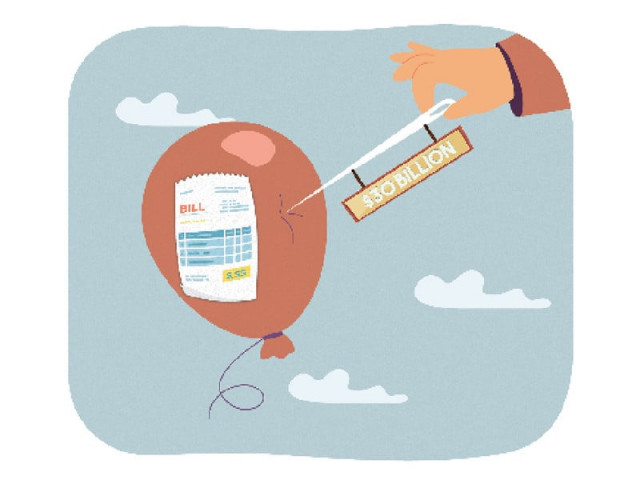Govt seeks $30b for gas production
Aims to rein in swelling energy import bill that will double in seven years

Pakistan on Tuesday made a pitch for a $30 billion foreign and local investment in gas production aimed at puncturing a ballooning energy import bill projected to nearly double to $31 billion in seven years in a business-as-usual scenario.
The appeal was made to foreign investors in presence of interim Prime Minister Anwaarul Haq Kakar and Chief of the Army Staff (COAS) General Asim Munir.
If materialised, it will be the biggest investment in the energy sector after about $20 billion invested in power generation by Beijing under the China-Pakistan Economic Corridor (CPEC).
Pakistan has 235 trillion cubic feet (tcf) of gas reserves and 10% of it can be explored with an investment of $25 billion to $30 billion in the next one decade to reverse the current declining production of gas and replace the import of energy, said Energy Minister Mohammad Ali.
The minister said that the Council of Common Interests (CCI) – the constitutional body having the mandate to make decisions on energy policies – on Monday approved a slew of changes in gas policies to attract an investment of $30 billion.
PM Kakar credited the Special Investment Facilitation Council (SIFC) and the Ministry of Energy for fostering an investor-friendly environment by streamlining regulations and procedures, and securing approvals of the CCI.
Ali stressed that the $30 billion investment could generate $165 billion of wealth in the areas of natural gas, tight gas, shale gas, offshore gas and crude oil production.
In 2023, Pakistan’s energy import bill was $17.5 billion, which is projected to increase to $31 billion in 2031 and will more than triple to $60 billion by 2048 if the decline in gas production is not reversed, said Ali Taha Al-Temimi, Country Manager of Kuwait Foreign Petroleum Exploration Company.
Pakistan currently meets 29% of gas, 85% of oil, 20% of coal and 50% of liquefied petroleum gas (LPG) requirements through imports.
“If we do not explore our own gas, we would need to import LNG at a level never seen before,” said Mohammad Ali, adding that during the past eight years Pakistan imported $23 billion worth of LNG.
The energy minister said that crude oil production in the country had nosedived in the last many years and was forecast to decline further. He said that gas production plummeted up to 7% annually and was projected to go down further in future.
Compared to 10 years ago, Pakistan today produces $3.5 billion worth of less gas and oil, which has increased the import bill by the same amount, said the minister.
He emphasised that Pakistan had vast untapped reserves of gas and oil and only 10% of it could lessen reliance on imports. Pakistan is expected to hold first bidding for offshore oil and gas production in June this year, he announced.
Pakistan offers a humongous potential for offshore and onshore gas exploration and an investment of $30 billion is possible, said Ali.
Read E&P firms to invest $33m for oil, gas search
The offshore benchmarking study has already been conducted by Wood Mackenzie to assess the attractiveness and economic viability of applicable rules for all three offshore basins. The government has done fiscal benchmarking for offshore drilling.
The minister said that the CCI had approved groundbreaking recommendations of the Petroleum Division to incentivise and streamline exploration activities and investment.
The CCI has approved a 10-year tight gas exploration incentive, offering 40% premium over the respective zonal price of the Petroleum Policy 2012.
The CCI also approved an extension in the Petroleum Policy 2012 incentives for the existing licensees and offered special incentives for new exploratory efforts in the security-sensitive Frontier Zone.
It approved amendments to the carried interests for tight gas for the appraisal phase to share costs on full participation to remain eligible for enhanced share.
The energy minister said that in a paradigm shift to the current policy, companies had been given the right to sell 35% of their total production to private-sector parties aimed at ending the monopoly of the two Sui gas distribution companies. The current ratio is 10%.
The Natural Gas Wellhead Price Regulation, 2009 has been amended to align it with the Ogra Ordinance 2002, he added. Similarly, the Petroleum Rules 2012 have been extended to all the existing leases and licences.
Al-Temimi said that availability, uneven accessibility and affordability factors were impacting Pakistan’s energy security, which needed to be addressed through an integrated energy policy.
He said that investment in indigenous energy resources was critical together with energy efficiency measures to reduce dependence on imports and save foreign exchange reserves.
Tapping even 10% of the potential could reverse the decline in gas production that could further dip to one of the lowest levels, said the Kuwaiti investor.
Mari Petroleum Company MD Fahim Haider said that during the past three years, about 350 mmcfd had been added to gas production, which was equivalent to just one year decline in output.
Secretary Petroleum Momin Agha said that the local gas price was half of imported prices and whatever price the producers got they paid half of that in royalty and taxes.
The CCI has approved changes to the policies but all the policies are useless if the local and foreign investors do not invest, said the secretary while making a pitch for the new investment in the gas sector.
Published in The Express Tribune, January 31st, 2024.
Like Business on Facebook, follow @TribuneBiz on Twitter to stay informed and join in the conversation.



















COMMENTS
Comments are moderated and generally will be posted if they are on-topic and not abusive.
For more information, please see our Comments FAQ